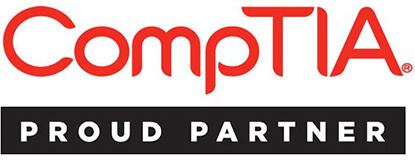What do Medical Billers do?
In the booming medical field, there are career opportunities for all types of people, including those who are not interested in providing medical care. Medical Billing Specialists (or Medical Billers) play an essential role in healthcare. They work behind the scenes to ensure one important thing goes right—billing. But what exactly does that entail?
The Medical Biller’s Job Description
Medical Billers are responsible for accurately communicating billing information from a patient’s medical provider to their insurance company. After billing the insurance company, the medical biller is also responsible for following up to ensure the bill is paid. It may sound simple, but learning how to communicate the information insurers need requires specialized career training and an eye for detail.
A Closer Look at the Medical Billing Process
When you visit your doctor and treatment or diagnosis is performed, a medical coder will review the doctor’s notes from the patient’s visit. The coder’s job is to translate these notes into standardized numeric codes that insurance companies will recognize and understand.
Next, the Medical Biller will use these codes to create a claim for the insurance company. They will submit the claim electronically, using a secure system to ensure patient privacy. The Medical Biller will follow up later to make sure the bill is paid by the insurer. The process allows the medical practice, hospital or clinic to be paid for the care it provides.
Usually, Medical Billers will work alongside medical coders. In some cases, both parts of the process will be performed by the same person—a medical billing and coding specialist.
Medical Biller Work Environment
Medical Billers typically work in an office environment, often within a medical practice, hospital or clinic. In some cases, they may also find work at health insurance companies, receiving and reviewing claims submitted by other medical billers. Some medical billers may be allowed to work from their own homes, but this varies from company to company.
Job Outlook
The medical field is rapidly growing in response to an aging U.S. population, which will need more medical services over time. That means more Medical Billers will be needed to keep up the pace of the billing process. Medical Billing is projected to grow 13 percent through 2026, faster than the average for all occupations.
Traits of a Successful Medical Biller
- Detail Oriented: Medical Billers need attention to detail to ensure that insurance claims are accurate. Otherwise, the claim may be denied.
- Ethical: Patients’ personal medical information is, by law, confidential. Medical Billers need to use discretion when working with this data in order to protect patients’ privacy.
- Analytical: You’ll need to be able to understand medical records and diagnoses in order to accurately bill or code medical services.
- Technically Proficient: Medical Billers spend their days using specialized healthcare software on a computer, so a certain level of technical proficiency is needed, including typing and database usage.
How to Become a Medical Biller
Becoming a Medical Biller doesn’t require years of training or studying. In fact, many billers go from classroom to clinic in less than a year.
IBMC College’s 10-month Medical Billing Specialist Diploma program is taught by industry veterans with significant experience in the field. The program incorporates both classroom lectures and hands-on training in a lab setting. That means by the time you graduate, you’ll feel like you’ve already gained on-the-job experience.
After earning your diploma, taking the exam to become a Certified Medical Billing Specialist is recommended. It can give you a competitive edge in the job market, because it serves to verify that you learned the necessary skills during your college program.
Become a Medical Biller at IBMC College
IBMC College has been training medical and administrative professionals in northern Colorado for over 30 years. Local hospitals, clinics and medical practices rely on the college to help provide a talented workforce for the quickly-growing healthcare companies in the region.With flexible scheduling and locations in Fort Collins, Greeley and Longmont, IBMC College strives to make career training convenient, even for those who currently work full-time. Get started by speaking with a friendly and knowledgeable Admissions Representative. Call 800-495-2669 to learn more about the program—and have all your questions answered today.

